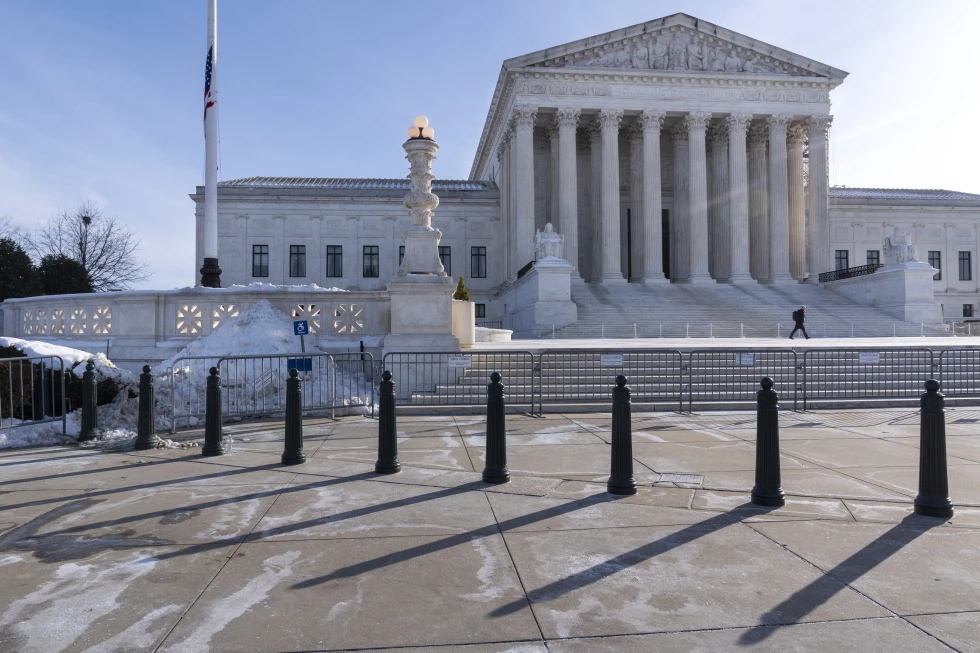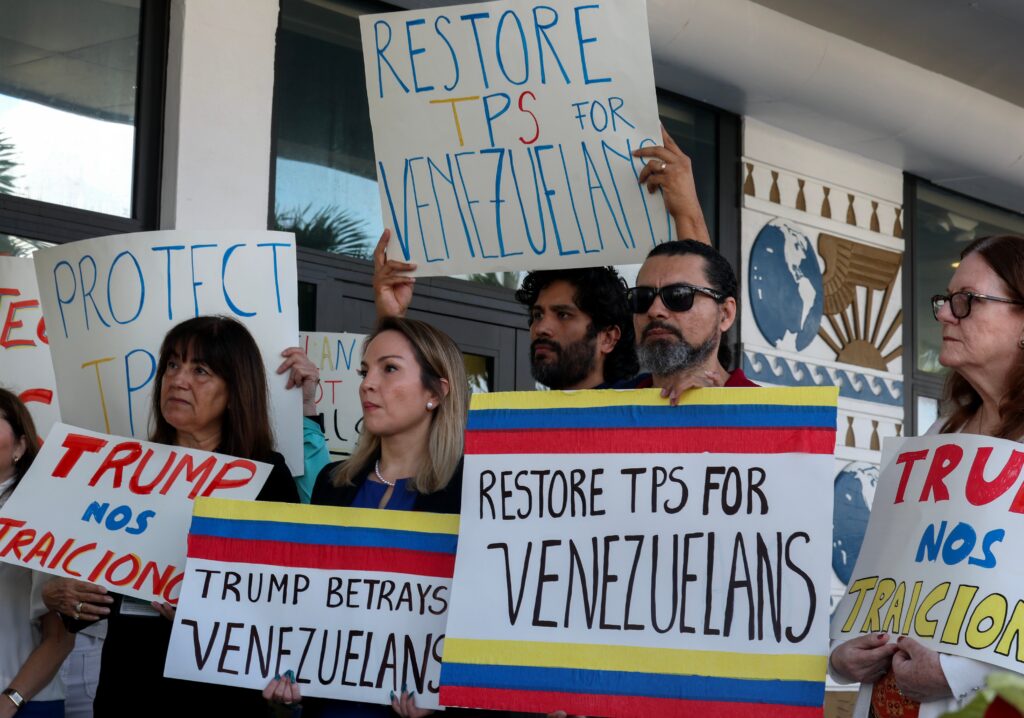WASHINGTON — The U.S. Supreme Court on Monday allowed President Donald Trump’s administration to revoke Temporary Protected Status (TPS) for more than 350,000 Venezuelans, opening the door to potential deportation amid the country’s ongoing economic and political collapse.

In a brief unsigned order, with only Justice Ketanji Brown Jackson dissenting, the high court granted the Trump administration’s request to halt a lower court ruling that had temporarily preserved the protections. The justices offered no explanation, a common practice in emergency appeals.
The decision overrides a ruling by U.S. District Judge Edward Chen in San Francisco, who had found that ending TPS for Venezuelans could destabilize the lives of hundreds of thousands and significantly disrupt the U.S. economy.
TPS, created by Congress in 1990, allows non-citizens from countries facing armed conflict, natural disasters, or civil unrest to legally remain and work in the United States. Venezuela was designated for TPS in 2021 due to widespread violence, persecution, and systemic collapse under Nicolás Maduro’s regime.
“This is the largest mass revocation of immigration status in modern American history,” said Ahilan Arulanantham, one of the attorneys representing Venezuelan TPS holders. He warned that the decision will leave families forced to choose between “survival or stability.”
Cecilia Gonzalez Herrera, a plaintiff in the case, expressed heartbreak over the ruling.
“Venezuelans are not criminals,” Gonzalez Herrera said. “We all deserve the chance to thrive without being sent back to danger.”
Mariana Moleros, a 44-year-old Venezuelan lawyer living in Florida, said she and her family fled death threats for opposing Maduro’s regime. After their asylum claim was denied, they were granted TPS — protections now suddenly in jeopardy.
“We came here for peace and protection. Now we’re back to living in fear,” Moleros said. “If we are returned, we face prison, torture, even death.”
The Department of Homeland Security hailed the Supreme Court’s decision as a victory for American security and immigration integrity. In a statement, DHS spokeswoman Tricia McLaughlin said the Biden administration had abused humanitarian programs, and the Trump White House is “reinstating integrity” into the system.
“The Trump administration is reinstituting integrity into our immigration system to keep our homeland and its people safe,” McLaughlin said.
The case is one of several immigration-related emergency appeals brought by the Trump administration before the Supreme Court. Earlier this month, the administration also asked to terminate humanitarian parole programs for immigrants from Cuba, Haiti, Nicaragua, and Venezuela — decisions that could expose hundreds of thousands more to removal.

Venezuela has seen more than 7.7 million citizens flee since 2013 due to hyperinflation, shortages, and violent repression. Inflation soared to 172% year-over-year in April, prompting President Maduro to declare an economic emergency. His government — widely denounced as illegitimate — continues to imprison political opponents and suppress dissent.
Despite the humanitarian conditions, Solicitor General D. John Sauer argued that Judge Chen’s order unlawfully infringed on executive authority over immigration and foreign policy.
“The decision to terminate TPS is not equivalent to a final removal order,” Sauer noted, emphasizing that Venezuelans affected may still explore other legal avenues to remain in the U.S.
Judge Chen had previously warned that ending TPS for Venezuelans would disrupt communities and cost billions in lost productivity. He concluded the government had failed to demonstrate any immediate harm in extending the protections.
Still, the Trump administration moved swiftly to unwind the program — part of a broader rollback affecting 600,000 Venezuelans and 500,000 Haitians, with TPS granted in renewable 18-month increments.
Last week, DHS also announced that TPS for Afghanistan, granted in 2022, would expire this July.
As the legal battle over TPS continues, a federal hearing is scheduled for next week in Chen’s courtroom. Meanwhile, hundreds of thousands of Venezuelans now face the harsh reality of uncertain legal status — and the looming threat of forced return to a nation in turmoil.



